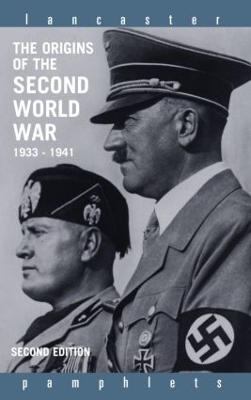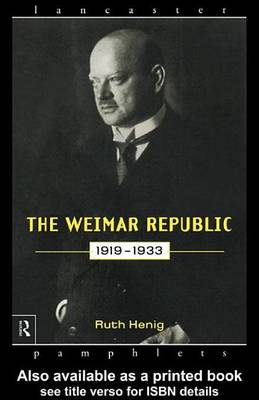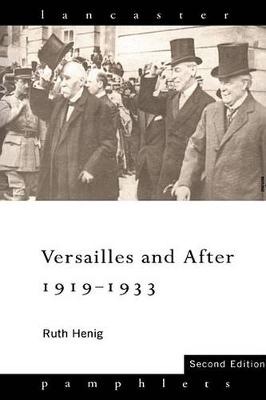Lancaster Pamphlets
7 total works
Updated and expanded throughout to take into consideration the most up-to-date historical research, this new edition of The Origins of the Second World War analyzes the reasons for the outbreak of the Second World War.
Experienced historian Ruth Henig considers:
* the long-term factors that led to war
* the effect of British appeasement policies
* the significance of American isolation
* the ambitions of Italy, Japan and Russia.
The Origins of the Second World War brings one of the most controversial historical topics to life for a whole generation of students and scholars seeking to understand the reasoning and events behind this major event in world history.
* an examination of the legacy of the First World War and the Treaty of Versailles
* discussion of the early years of crisis culminating in the Ruhr Invasion and the Dawes Settlement
* assessment of the leadership of Stresemann and Bruning
* exploration of the circumstances leading to the rise of Hitler
* an outline of the historiography of the Weimar Republic.
Ruth Henig's fully revised and extended second edition of Versailles and After includes a new chapter on recent historiography of the subject and provides students with concise coverage of the following topics:
* the terms of the Treaty of Versailles
* the inadeqacies of the League of Nations as a supranational peacekeeping body
* why hopes of long term stability gradually faded.
* considers the long-term factors that led to the war
* assess the effect of British appeasement policies
* explains the significance of American isolation
* examines the ambitions of Italy, Japan and Russia.




